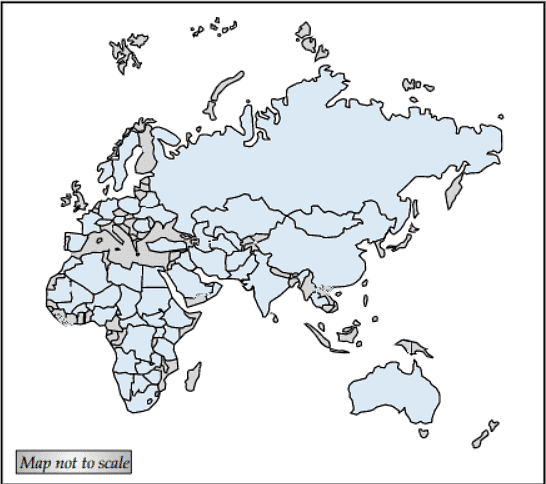History: CBSE Sample Question Paper - 5 | Sample Papers for Class 11 Humanities - Humanities/Arts PDF Download
History
Time: 3 Hrs.
M.M: 80
SECTION - A
Q.1. Multiple Choice Questions
(i) Very few Mesopotamians could read and write because:
(a) People did not pay attention towards education
(b) The signs could only be coded by royal family
(c) The signs used ran into hundreds and were complex
(d) People were more interested in economic activities
(ii) Sumer was the _______plains of Mesopotamia.
(a) Southern
(b) Northern
(c) Western
(d) Eastern
(iii) When did the rule of Yuan dynasty come to an end in China?
(a) 1389
(b) 1258
(c) 1385
(d) 1368
(iv) After the decline of the Manchu empire, a Republic of China was established in:
(a) 1911
(b) 1950
(c) 1902
(d) 1921
Q.2. Fill in the blanks.
(i) The _______ were the inhabitants of North Mexico.
(ii) The __________ was signed between China and Japan in 1895.
(iii) John Cabot reached __________in 1497.
(iv) __________ is a cave site in Spain.
(v) The Late Antiquity refers to the period of __________ to ___________ centuries.
(vi) Mathematical texts composed in _______ .
(vii) Countries to the east of the Mediterranean were known as_________.
(viii) Japan followed the path of modernization dominated by ________.
(ix) Mesopotamia was based on a ___________ plan.
Q.3. State whether true or false
(i) Nishapur was a Perso-Islamic center of learning.
(ii) Guilds were economic organisations formed in 11th - 12th century Europe for mutual aid.
(iii) Cave lazaret is the earliest example of cave-dwelling.
(iv) Wild pigs were known as bison in the USA.
(v) Tepochcalli was a school for the nobility.
(vi) The Christian notion of man was that man was a sinner.
(vii) Mobile animal herders were a threat to town life.
SECTION - B
Q.4. Differentiate between ‘Anthropology’ and ‘Ethnography’.
Q.5. Explain briefly the importance of trade to the Mongols.
Q.6. How did political unification and the growing demand for food and luxury items in urban areas expand the scope of trade?
SECTION - C
Q.7. Read the passage carefully and answer the questions that follow.
The late Roman bureaucracy, both the higher and middle echelons, was a comparatively affluent group because it drew the bulk of its salary in gold and invested much of this in buying up assets like land. There was of course also a great deal of corruption, especially in the judicial system and in the administration of military supplies. The extortion of the higher bureaucracy and the greed of the provincial governors were proverbial. But government intervened repeatedly to curb these forms of corruption – we only know about them in the first place because of the laws that tried to put an end to them, and because historians and other members of the intelligentsia denounced such practices. This element of ‘criticism’ is a remarkable feature of the classical world. The Roman state was an authoritarian regime; in other words, dissent was rarely tolerated and government usually responded to protest with violence(especially in the cities of the East where people were often fearless in making fun of emperors). Yet a strong tradition of Roman law had emerged by the fourth century, and this acted as a brake on even the most fearsome emperors.Emperors were not free to do whatever they liked, and the law was actively used to protect civil rights. That is why in the later fourth century it was possible for powerful bishops like Ambrose to confront equally powerful emperors when they were excessively harsh or repressive in their handling of the civilian population.’
(i) Give the main reason for the administration's corruption.
(ii) Discuss the Roman Empire's legal system.
(iii) How did the Roman government deal with widespread corruption in the upper echelons of government?
Q.8. Read the passage carefully and answer the questions that follow.
Thomas Jefferson, third President of the USA, and a contemporary of Wordsworth, spoke of the natives in words that would lead to a public outcry today:‘
This unfortunate race which we have been taking so much pains to civilise... have justified extermination.’
(i) What made him famous?
(ii) What was Thomas Jefferson's background?
(iii) What were his thoughts on native Americans?
Q.9. Read the passage carefully and answer the questions that follow:
We also caused to be painted, by the exquisite hands of many masters from different regions, a splendid variety of new windows...
Because these windows are very valuable on account of their wonderful execution and the profuse expenditure of painted glass and sapphire glass, we appointed an official master craftsman for their protection, and also a goldsmith...who would receive their allowances, namely, coins from the altar and flour from the common storehouse of the brethren, and who would never neglect their duty, to look after these.
(i) What did the goldsmith get as an allowance?
(ii) Who was tasked with protecting the windows?
(iii) Why were windows so valuable?
SECTION - D
Q.10. Describe five key characteristics of the Renaissance.
Q.11. Describe in detail Mesopotamian civilization's achievements.
Q.12. Describe the Mongols' social and political history.
Q.13. Describe the two paths to modernization that Japan and China have taken.
SECTION - E
Q.14. Mark the following major seas on the map:
(a) The Black Sea
(b) The Adriatic Sea
(c) The Caspian Sea
(d) The Red Sea





















